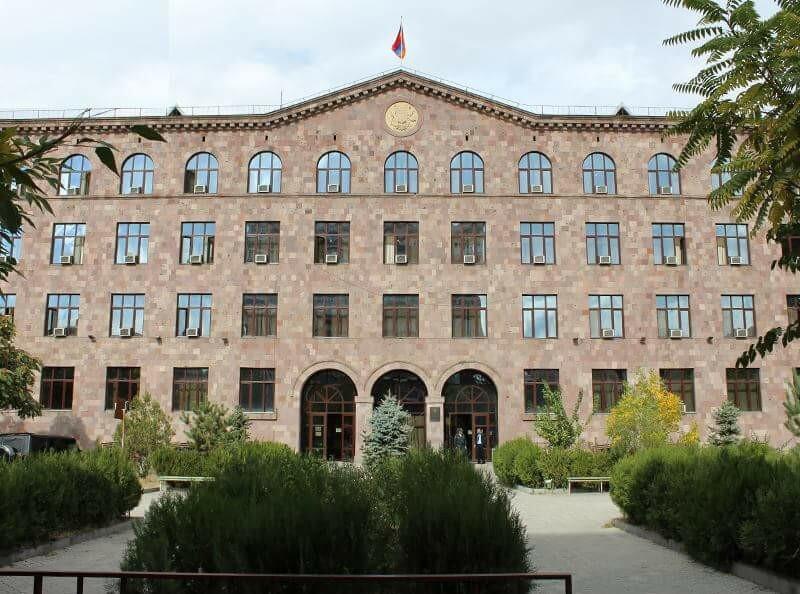
Freedom of Information Cases Filed by Hetq Drag On in Armenia's Courts
Getting information from government agencies has become a serious challenge for the media in Armenia.
Requests for information related to the expenditure of public funds are unreasonably rejected on the grounds it contains state, official or commercial secrets. The only legal way to get that information is to go to court. It’s a long, drawn-out process that often ends in failure.
On June 5 of this year, the Investigative Journalists NGO (publisher of Hetq) filed a lawsuit against Armenia’s Ministry of High-Tech Industry for not providing the names of the IT companies that received government financial assistance.
On December 1, 2022, the government adopted a decision to provide 10 billion drams of state support to organizations operating in the IT sector. The need for support was explained by the losses suffered by the companies, which were caused primarily by the devaluation of the Armenian dram against the dollar.
Despite Hetq’s many requests, the ministry has avoided providing the names of the companies receiving this assistance. Hetq requested two types of information: the list of companies that received support and the amount of support.
Administrative Court Judge Elena Arakelyan has scheduled the first trial date for January 24 of next year, seven months after accepting the case.
But hold on. If the judge or one of the parties involved requests a postponement on medical grounds, the trial can be pushed back indefinitely.
Examining Judge Arakelyan’s recent workload, we can safely conclude that this case will extend far into 2024 and possibly beyond.
We looked at the cases the court assigned to Arakelyan for the period of June 1-12. It’s when we filed our complaint against the ministry.
Arakelyan had been assigned sixteen cases. Three will be examined “in writing”, that’s to say without an actual court session. The verdicts will be announced six-seven months later. Seven cases were rejected and three were returned.
During the specified period, Judge Arakelyan had only four days of session. She did not have a session for four days. She scheduled nineteen sessions, of which half were postponed.
We tried to contact Judge Arakelyan to clarify how many cases are pending on her docket, but she’s overseas on a one-month vacation.
Given the snail’s pace of the judicial sector, Hetq can realistically expect a verdict in this freedom of information case by 2025, at the earliest.
All the while, Armenian taxpayers will not know which IT companies received government financial assistance, i.e., their money. The ministry's reluctance to provide specifics merely fuels speculation that the government has something to hide, that the selection process wasn't as transparent as reported.
This flies in the face of Armenia’s Constitution that guarantees “that everyone has the right to seek, receive and disseminate information and ideas through any means of information, without interference from state and local self-government bodies and regardless of state borders."
In addition to the lawsuit against the Ministry of High-Tech Industry, the Investigative Journalists NGO has two more court cases demanding information, with no end in sight either.
Since August 2019, Yerevan’s Court of General Jurisdiction is reviewing a case pitting Hetq against the Alikhanyan National Science Laboratory (Physics Institute).
In 2019, Hetq wrote to the Institute, requesting that it hand over decisions the board of trustees had made over the past nine years. Institute Board Chairman Nerses Yeritsyan said Hetq would have to pay AMD 550,000 ($1,150) as a service charge. Hetq took the Institute to court, seeking the information be provided at no charge.
The other case pits Hetq against Armenian Parliament Speaker Alen Simonyan, based on his refusal to hand over information regarding how the forty-three vehicles serving the legislature are used and by whom.
In June 2022, the Administrative Court ordered Simonyan to release such information. He appealed the decision. The court has scheduled a trial date for November 30, 2023. Even if a verdict is handed down, either party then can file an appeal with the Court of Cassation.
What "state secret" is Simonyan arguing in defense of?
The European Court of Human Rights, as well as Armenia’s Court of Appeals, specifically emphasize that "justice delayed is justice denied". The idea is that unwarranted delays in litigation can result in a "denial of justice" for the parties, as seen in the above freedom of information cases.
To be sure, Armenia's courts are overloaded and there appears to be little if any oversight to rectify how some judges manage to get by with doing the mininum required. Armenia's situation isn't unique in this respect, but this is of little comfort to those who have to deal with the courts on an unending basis.
 Videos
Videos Photos
Photos
Write a comment